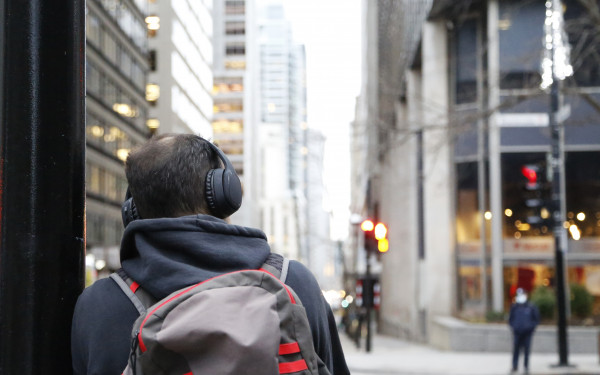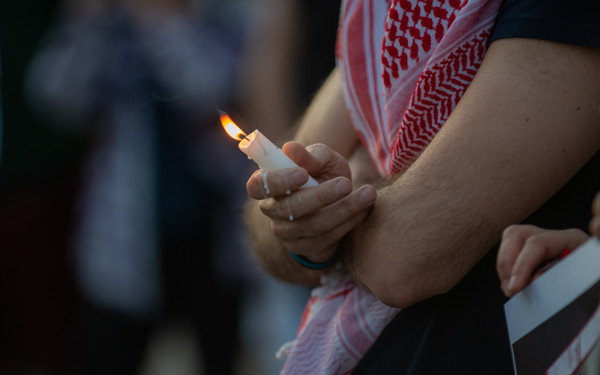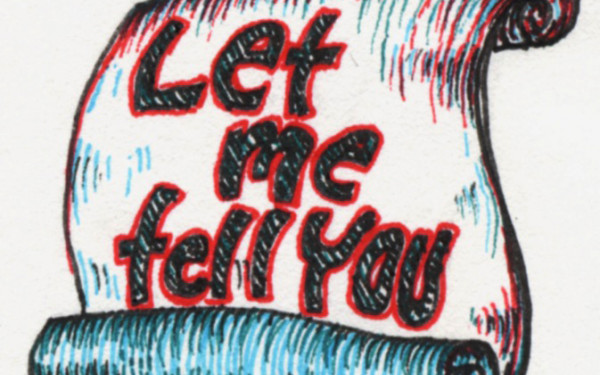Don’t Shoot The Messenger
Anonymous Sources are Vital to Journalism
Sparked by the complaint of an anonymous whistleblower, the Trump impeachment hearings continue to fuel conversations surrounding the credibility of anonymous informants.
Often portrayed in movies as a shadowy figure in a desolate underground parking garage, anonymous sources are not always welcome once we step away from the big screen.
However, history has proven that they remain critical to uncovering hidden power and corruption, which undermines the moral fabric of society and erode democracy.
For that reason, I believe anonymity will always have a place in journalism, so long as we continue to value intellectual freedom.
One of the most notorious anonymous sources in the history of journalism is, without a doubt, “Deep Throat.”
Later revealed to be William Mark Felt, a former associate director of the FBI, “Deep Throat” played a key role in exposing the Watergate scandal.
Ultimately contributing to the downfall of the Nixon presidency in the 1970s, the scandal revealed multiple illegal activities and abuses of power by members of the administration, including the President himself.
Most striking to me is not the corruption and lies, as unfortunate as that may sound, but rather, the determination of Bob Woodward and Carl Bernstein, two reporters from The Washington Post.
The journalists kept the identity of their informant a mystery from everyone, even their editor.
You might wonder, “how can I trust an anonymous source?”
There appears to be an apprehension about someone who does not reveal their identity and might do so to avoid taking responsibility for what they say.
In 2018, an anonymous op-ed published by the New York Times titled “I am part of the resistance inside the Trump administration” sparked mixed reactions in the public sphere.
Among the critics was former Defense Secretary James Mattis, who insisted that the author should have put their name on the article.
He added the op-ed was part of a bigger issue with the nation’s political environment.
These are legitimate concerns that raise the issue of credibility of the information provided.
Anyone who receives information from a random person on the street should feel the need to double check with trusted sources to avoid slipping into the pitfall of gossip.
It should come as no surprise that, in journalism, anonymity is a controlled procedure. The information provided to journalists is not simply taken and printed.
With juicy information comes excessive skepticism.
Good journalists go through a series of steps to verify the veracity of hearsay, and certain parts may even be omitted for lack of proof.
According to the Canadian Association of Journalists’ ethics guidelines, anonymity is justified and even necessary on some occasions.
When a source of information is in danger, or if the material obtained is of strong public interest and cannot be obtained another way, then there is a need for anonymity.
Sources are kept hidden, not from those who benefit from them, but from those who wish to corrupt them or eliminate them at any cost.
It is the journalist’s responsibility to protect their sources from harm’s way.
So long as the details provided are cross-checked independently and proven to be true and of strong public interest, what does it matter where the information comes from?
In The Elements of Journalism, Bill Kovach and Tom Rosenstiel reaffirm that the role news plays in people’s lives remains central, and should not be defined by the technology or techniques used by journalists to gather information.
Instead of a goose chase to find out “whodunit,” David Kusnet, a former speechwriter for Bill Clinton, suggests we focus on finding out if what this person is saying is true or not.
In 2017, Liz Spayd, former public editor at the New York Times, addressed readers’ concerns about the use of unnamed sources in the newspaper.
“Had the legions of unnamed not come forward, the C.I.A. black-site prisons would never have come to light,” she wrote.
“Nor would the government’s wiretapping of private citizens, or the investigations of a potential bridge between the Trump team and Moscow. If anonymous sources sometimes connote the weakest journalism, other times they signal the best.”
Globally, there is a lack of confidence in the media.
Add to that the growing concern for fake news, and you have an audience who will already be extremely critical of named sources in the media, let alone anonymous ones.
It is also clear that many degrees of transparency are needed in journalism.
As Jill Abramson, managing editor at the New York Times, puts it: “If The Times and other large news-gathering organizations declared a unilateral ban on anonymous sources, readers would be denied critical and urgent news in the public interest.”
Freedom of expression is great, in theory, but we have to acknowledge that, in practice, it is much more complex than what we would hope for.
President Trump recently suggested that the whistleblower behind the anonymous New York Times op-ed was committing treason, a serious crime in the United States.
Treason is prohibited, both at a federal and state level.
Title 18 of the US code, section 2381, clearly states that anyone guilty of treason can face sentences ranging from jail time to capital punishment.
Should we encourage sources to reveal their identity at the cost of their own life?
For many people writing in anonymity, revealing their identity would be a death wish.
It puts them, their family and anyone they’ve crossed paths with in danger, a heavy burden to carry.
Anonymity is not the issue, corruption is.
Why are we more focussed on unnamed sources, rather than the shady dealings that they are exposing?
I believe that all sources deserve reporters’ protection, anyone who defines such practice as a form of cowardice is speaking from a place of privilege.
Please believe me when I say that it is a luxury that many people in many countries can only dream of.
The reality is that some truths can only be released to the public in this manner.
Ultimately, we need to remind ourselves that the shame should remain on the culprit, not the messenger.







